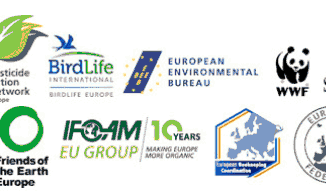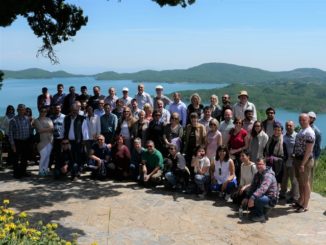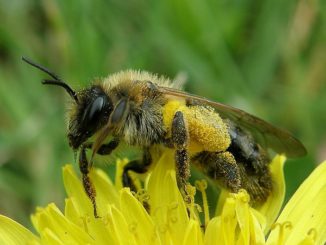Just a few days before the crucial vote on the European ban on neonicotinoids, Greenpeace and the Beekeepers Association of Greece have called on the Greek Agriculture Minister, Mr Tsaftaris, to support Greek beekeeping and protect the environment in voting for the ban.
 The Greek organisations are asking the Minister not to succumb to false arguments posed by large firms such as Bayer and Syngenta.
The Greek organisations are asking the Minister not to succumb to false arguments posed by large firms such as Bayer and Syngenta.
In the first vote that took place in March 2013, Greece was among the 9 countries that voted against the European Commission’s proposal for a ban on the three neonicotinoids: pesticides scientifically proven to be harmful to bee populations.
Since entering his post, the Greek Minister has constantly repeated how much he wants to support agriculture in Greece. Agriculture has proven vital to the Greek economy at this time of the economic crisis.
The Ministry must have read the report of the European Food Safety Authority on the risks of the neonicotinoids for bees. Greenpeace and the Greek Beekeepers’ Association have also communicated their own reports and assessments for the risks to Greek agriculture. So no excuses, Mr Tsautaris!
Elena Danali, agriculture campaigner from Greenpeace Greece states:
“The only people who gain from the extensive use of pesticides that kill bees are agrochemical companies that sell them and nobody else! On 29 April, Mr Tsaftaris has a second chance to vote in favor of bees, food and the environment and not in favor of agrochemicals companies such as Bayer and Sygenta.”
Greenpeace and Beekeepers Association of Greece, reflecting the feelings of 17,000 bee families in the country, invite the Minister of Rural Development and Food, Mr Tsaftaris to switch his position. He is being asked to:
- Support the European Commission’s proposal for a ban of three neonicotinoid pesticides that kill bees and poison our food.
- Fully consider a ban for the seven most harmful pesticides to bees in Greece (Bayer’s imidacloprid and clothianidin, Syngenta’s thiamethoxam, BASF’s fipronil and clorpyriphos, cypermethrin and deltamethrin), and replace them with safe for bees (humans and the environment).
- To promote sustainable agriculture and not the current model of intensive agriculture that leads to the use of hazardous chemicals and GMOs.
Agriculture without neonicotinoids can exist. Agriculture without bees can not!
ARC2020 is also running a campaign leading up to the vote on April 29th. Find out how your Minister voted in March, and urge them to support Europe’s bees here: http://www.goodfoodgoodfarming.eu/eventsactions/bee-action.html





